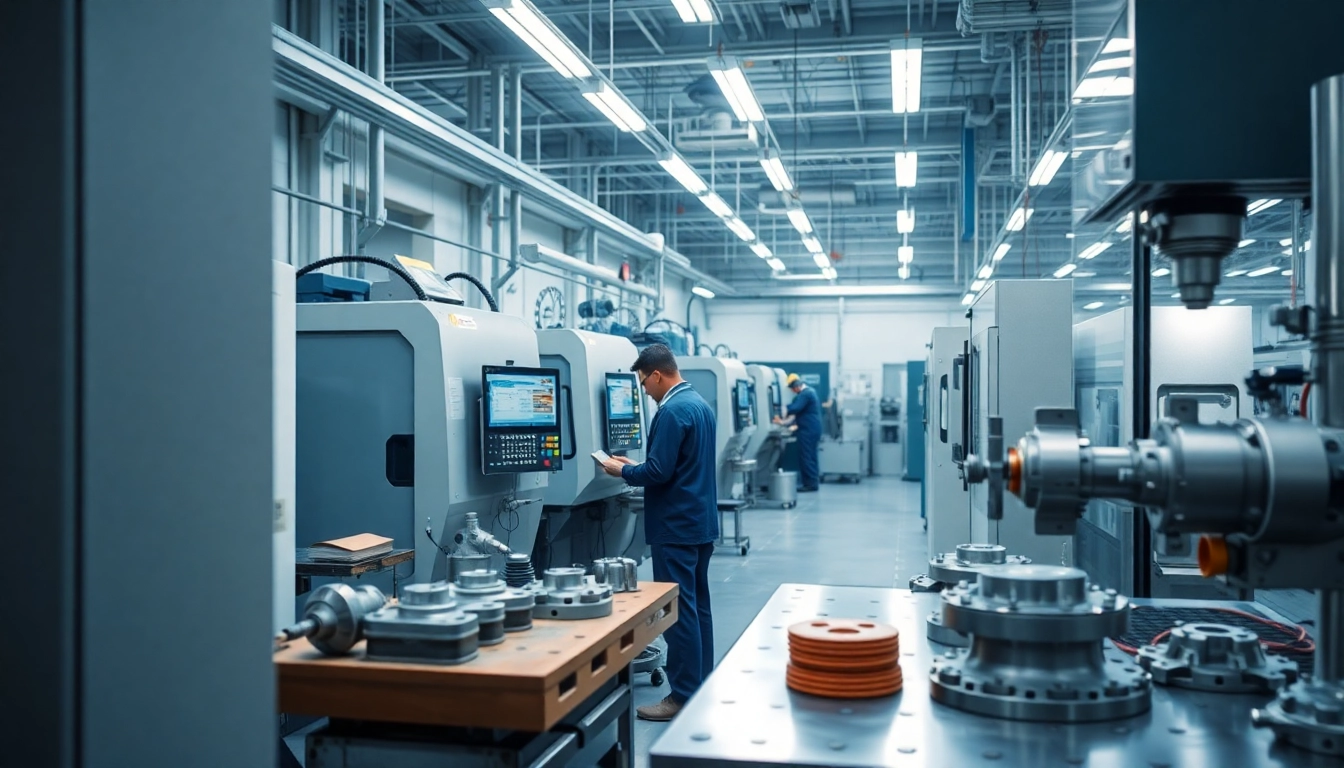Advanced Precision Machining Malaysia: Mastering Techniques for 2025 Success

Understanding Precision Machining in Malaysia
Precision machining in Malaysia represents a cornerstone of the modern manufacturing landscape, blending technology with skilled craftsmanship. This intricate process is essential for creating components with precise dimensions and tolerances, applicable in various industries such as automotive, aerospace, and electronics. As Malaysia positions itself as a hub for manufacturing excellence, understanding the nuances of precision machining is critical for professionals and businesses alike. When exploring options, precision machining malaysia offers comprehensive insights into local solutions tailored to meet diverse manufacturing challenges.
What is Precision Machining?
Precision machining is a manufacturing process that involves the removal of material from a workpiece to produce parts with very tight tolerances. It utilizes various machining techniques, such as CNC (computer numerical control) milling, turning, and grinding, to achieve high accuracy and finish. The hallmark of precision machining is its ability to create components that meet exact specifications, often leading to improved performance and durability in end products.
Importance of Precision Machining in Manufacturing
The significance of precision machining cannot be overstated. It directly impacts the efficiency, reliability, and quality of manufactured goods. In sectors like aerospace and medical equipment, where safety and performance are paramount, the ability to produce components with high precision ensures that products meet stringent regulatory standards. Consequently, businesses that invest in precision machining capabilities often experience reduced production costs and enhanced competitive advantage.
Overview of the Malaysian Precision Machining Industry
The Malaysian precision machining industry has seen remarkable growth, driven by increased investments in technology and skilled labor. Key players in this sector are adopting advanced manufacturing technologies and practices, which align with international standards. Companies such as Setsu Precision and Ares Precision Machining are examples of firms that have made significant strides in offering precision engineering solutions, catering to both local and global markets. With Malaysia’s strategic location and authoritative manufacturing expertise, the country is poised to become a leading destination for precision machining in Southeast Asia.
Key Technologies Driving Precision Machining
Latest CNC Machine Innovations
CNC machines are at the forefront of precision machining technology. Recent innovations include advancements in multi-axis machining centers, which provide greater flexibility and efficiency. These machines can perform complex operations in a single setup, reducing production time and ensuring higher accuracy. The integration of AI and IoT in CNC machines is also enhancing their predictive maintenance capabilities, leading to less downtime and optimized machining processes.
Advanced Materials Used in Precision Machining
The choice of material is critical in precision machining, influencing both the manufacturing process and the final product characteristics. High-strength alloys, composites, and advanced polymers are increasingly being used, thanks to their superior properties like lightweight and corrosion resistance. These materials cater to diverse applications, ensuring that products meet the required performance criteria across various sectors.
Automation and Its Impact on Efficiency
Automation is revolutionizing the precision machining landscape, allowing for increased productivity and reduced labor costs. Automated systems enable consistent quality and minimize human error, which is crucial in achieving the tight tolerances required in precision manufacturing. Moreover, the implementation of robotics in production lines is paving the way for more streamlined operations, enhancing overall efficiency.
Best Practices for Precision Machining Operations
Quality Control Measures and Standards
To ensure that precision machining operations yield high-quality products, robust quality control measures must be in place. This includes adherence to international quality standards such as ISO 9001, which emphasizes process documentation and continuous improvement. Utilizing advanced metrology equipment to perform inspections throughout the machining process further guarantees that each component meets its specified tolerances.
Sustainability Practices in Precision Machining
Sustainability is becoming an essential aspect of precision machining. Companies are increasingly adopting eco-friendly practices, such as recycling waste materials and using biodegradable coolants. Additionally, investing in energy-efficient machinery not only reduces the environmental footprint but also lowers operational costs, further enhancing competitiveness in the market.
Employee Training and Skill Development
The success of precision machining operations heavily relies on the skills of the workforce. Continuous training programs and skill development initiatives are vital in ensuring that employees are equipped to handle advanced machining technologies and adhere to best practices. Investing in human capital not only enhances productivity but also fosters innovation within the organization.
Common Challenges in Precision Machining
Addressing Production Bottlenecks
Production bottlenecks can severely hinder the efficiency of precision machining operations. Common causes include outdated machinery, ineffective workflows, and lack of skilled labor. To mitigate these challenges, companies should conduct regular assessments of their production processes, identifying areas for improvement and investing in necessary upgrades.
Managing Material Waste and Costs
Material waste is a significant concern in precision machining, impacting both cost and sustainability. Implementing lean manufacturing principles can help in reducing waste and enhancing productivity. Techniques such as just-in-time inventory management ensure that materials are utilized efficiently, minimizing excess and reducing costs associated with overproduction.
Ensuring Compliance with Industry Regulations
Compliance with industry regulations is critical in precision machining, especially in sectors like aerospace and medical. Businesses must stay updated on relevant regulations and ensure that their processes and products meet these standards. Regular audits and certifications from recognized bodies can assist in maintaining compliance and instilling confidence among clients.
The Future of Precision Machining in Malaysia
Emerging Trends for 2025 and Beyond
Looking ahead to 2025, several trends are shaping the precision machining landscape in Malaysia. The rise of additive manufacturing, integration of AI in machine learning, and the increasing use of advanced robotics are set to redefine the industry. These innovations will enable manufacturers to produce more complex components with reduced lead times and enhanced customization possibilities.
Investment Opportunities and Market Growth
The Malaysian precision machining sector presents numerous investment opportunities driven by the growing demand for high-quality components. As industries such as automotive and aerospace expand, so too will the need for precision machining services. Investors looking to enter this market can benefit from favorable government policies and incentives aimed at bolstering the manufacturing sector.
Predictions for Technology Advancements
Technology advancements in precision machining are expected to accelerate, with an emphasis on smart manufacturing solutions. The integration of IoT devices will facilitate real-time tracking of machinery and production processes, enabling companies to optimize operations and respond swiftly to market changes. Additionally, improvements in materials science will lead to the development of new materials that further enhance the efficiency and efficacy of precision machining.






